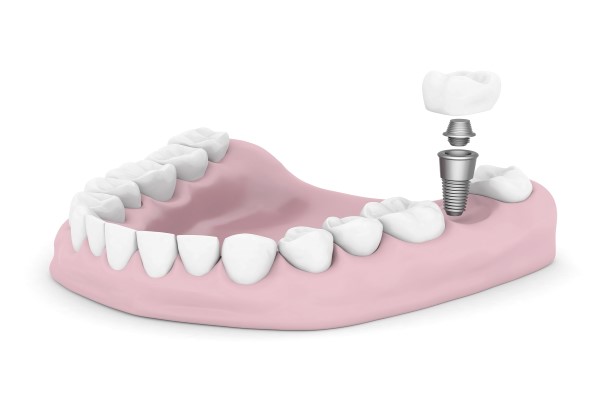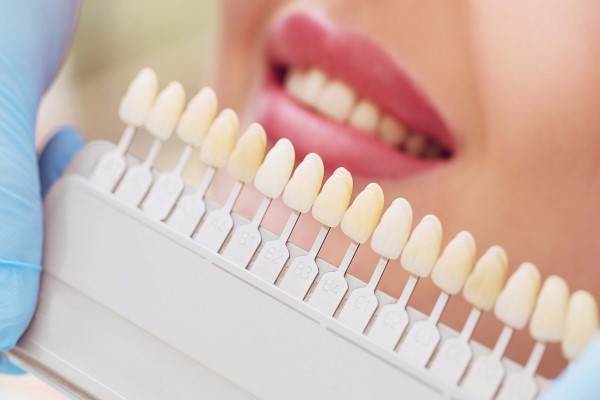The Difference Between Dental Inlays and Dental Fillings

If you have a decayed tooth in need of repair, a dental inlay is one of several restoration options available. Many people are not familiar with inlays and may confuse them with fillings. The confusion is understandable as both inlays and fillings restore a tooth that is damaged due to decay. However, each is appropriate for different situations.
When would you need an inlay rather than a filling?
Generally speaking, a filling is appropriate for treating minor cavities. Because a dental inlay requires the removal of more tooth material, it is more appropriate for treating more extensive decay. Dental inlays are also stronger than regular fillings, so they may be more appropriate for treating the molars in the back of the mouth. The molars bear most of the responsibility for chewing food and are therefore subjected to high pressure.
However, there are other factors that go into determining whether you need a filling or a dental inlay. An inlay is only an option if there is sufficient tooth material remaining to support it. For example, if the cavity affects the center of the chewing surface, an inlay may be appropriate. On the other hand, if the damage affects the cusps of the tooth, you may require a filling or another restoration option.
What are some important differences between a filling and a dental inlay?
There are several differences between an inlay and a filling. Here are a few of the most significant.
Durability
Inlays are more durable than fillings. Consequently, they make your teeth stronger as a result. According to Colgate, inlays make your teeth 75% stronger than they were prior to treatment. By contrast, a filling can actually weaken your teeth, especially if it is very large.
Because inlays are more durable than fillings, they tend to last longer as well. Inlays can last up to 30 years and have a lower failure rate than fillings.
Materials
Part of the reason that dental inlays are stronger than fillings is because of the materials that each is made out of. Dental fillings are made out of either a composite acrylic resin or a metal amalgam. Inlays are made out of stronger materials, such as gold or porcelain.
Appearance
A filling made out of a composite resin resembles a tooth's natural appearance. However, an inlay made of porcelain looks even more natural. Nevertheless, this only applies to materials designed specifically to mimic the appearance of the tooth. Inlays and fillings made of metal do not look natural under any circumstances.
Procedure
The procedure to place a filling can be completed in a single visit. The dentist removes the decayed tooth material and fills the remaining hole in the tooth with the composite or amalgam, shaping it to fill in the space completely. A dental inlay typically has to be fashioned in a lab, so once the decayed material is removed, an impression is taken of the tooth and sent to the lab to craft an inlay that fits exactly. A temporary inlay is placed in the interim, and once the permanent inlay comes back from the lab, a second appointment is required to cement it in place.
Conclusion
A dental inlay is different from a filling, but both are used to restore teeth with decay.
Request an appointment here: https://www.gladstonefamilydental.com or call Gladstone Family Dental And Implants at (816) 559-7943 for an appointment in our Gladstone office.
Check out what others are saying about our dental services on Yelp: Dental Restorations in Gladstone, MO.
Recent Posts
Wondering if a dental restoration is in your near future? According to Cleveland Clinic, restorations are the various ways a dentist can replace or restore missing teeth or missing parts of the tooth structure. Ready to learn more about dental restorations?Understanding more about the dental restoration process, as well as the types of restoration options available,…
A restorative dentist provides various treatments that help to address issues that develop in your mouth. Restorative dentistry focuses primarily on performing treatments that restore the function of damaged teeth.Wondering how a restorative dentist can help to improve your oral health? Let us take a look at some of the most popular treatments performed by…
A smile makeover is a great way to improve the aesthetic, form and function of the smile for those that have unhealthy teeth and/or gums. The process involves anywhere from one to multiple procedures, depending on the patient's desires and goals. The number of procedures tends to dictate how long the entire process can take. Outlined…
Have you been thinking about getting a smile makeover? If you are unhappy with the way your teeth look, it might be time for treatment. Depending on the problem you are facing, there are various methods the dentist can use to improve your appearance. You no longer have to feel embarrassed about your smile or…


